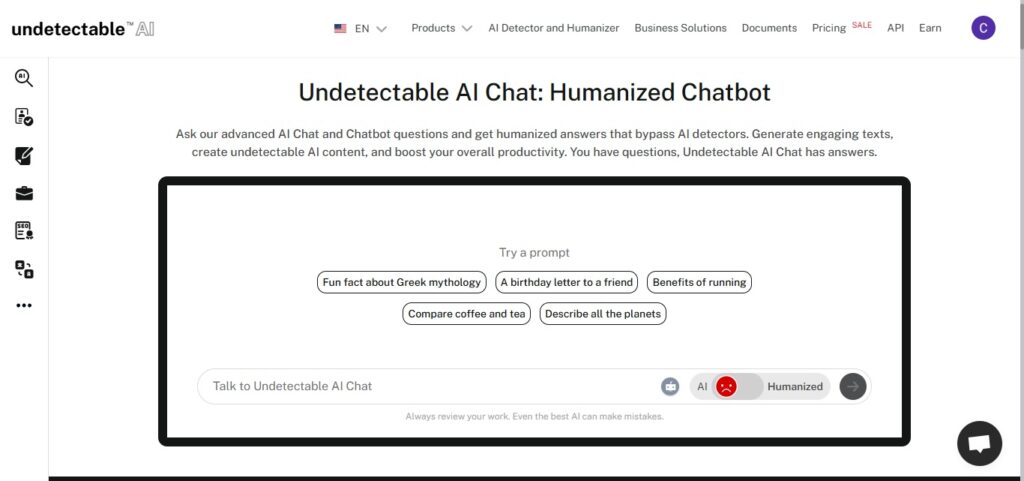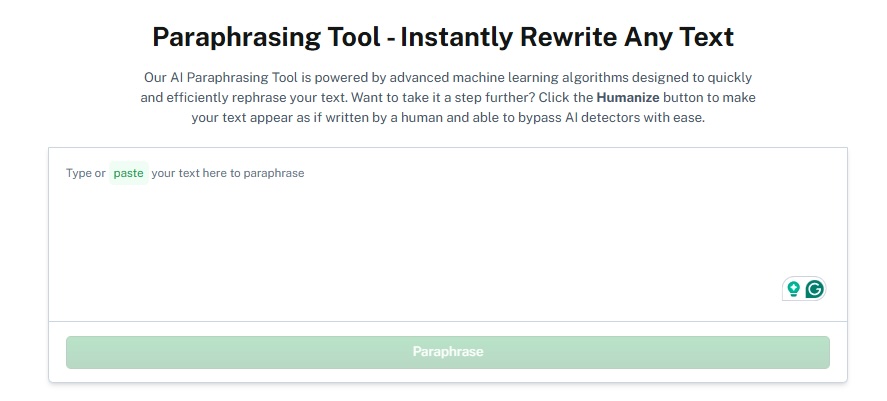“What is the longest word in the English language?”
You might’ve heard of the word “Supercalifragilisticexpialidocious.” It’s a tongue-twister from the 1964 film Mary Poppins, and even though it came out decades ago, the word still sticks with many today.
For many kids, it was the first “big word” they tried to memorize—and yes, it’s a real word!
But is it the longest word in the English language?
In this article, we’ll identify the longest word in English, spot other strong contenders, how long words are actually formed, and go over the best way to use them seamlessly when writing without sounding like you’re trying too hard.
Key Takeaways
- The longest word in the dictionary is pneumonoultramicroscopicsilicovolcanoconiosis, a 45-letter term for a type of lung disease caused by fine silica dust.
- Compound words and prefix-root-suffix combinations are common ways long words are formed in English.
- Using long words in writing works best when they fit naturally. Forced usage can feel awkward or look too formal.
What Is the Longest Word in English?
Now, technically, we won’t be spelling out the longest word.
A man once took more than three hours to pronounce it. The word is a 189,819-letter chemical name for “titin,” the largest known protein.
Overly complex words like this don’t usually make it into dictionaries.


Never Worry About AI Detecting Your Texts Again. Undetectable AI Can Help You:
- Make your AI assisted writing appear human-like.
- Bypass all major AI detection tools with just one click.
- Use AI safely and confidently in school and work.
But in the dictionary, the longest word is pneumonoultramicroscopicsilicovolcanoconiosis. It has 45 letters.
This word refers to a type of lung disease caused by inhaling very fine silica dust. It’s often linked to people who have worked near volcanoes or in mining.
Curious? Here’s how to pronounce the longest word in English:
/ˌnjuː.mə.nəʊˌʌl.trəˌmaɪ.krəˌskɒ.pɪkˌsɪ.lɪ.kəʊˌvɒl.keɪ.nəʊˈkəʊ.ni.ə.sɪs/
Or in simplified syllables:
nyoo-muh-noh-ul-truh-my-kroh-skop-ik-sil-i-koh-vol-kay-no-koh-nee-oh-sis
Here’s a breakdown of the word’s parts:
- Pneumono – lungs
- Ultra – extreme or beyond
- Microscopic – tiny
- Silico – silicon
- Volcano – volcanic
- Osis – medical condition
Here’s a fun fact: The word was coined in the 1930s by the president of the National Puzzlers’ League.
It was meant to be a tongue-in-cheek example of a long word. So the word did start as kind of a joke, but then it caught on.
Sometimes, it’s just fun to learn something new. Aside from that, knowing interesting things like the longest word in English can actually inspire creativity.
If you’re writing a descriptive essay, your dream book, or anything that needs a vivid vocabulary, being curious gives you more to play with.

Want to dig deeper into how complex words came to be? Make it accurate and engaging with the Undetectable AI’s AI Chat tool.
It’s a smart way to explore advanced vocabulary in context and sharpen your language skills.
Other Famous Long English Words
Some long English words are born from science, some from literature, and others from pop culture.
They’ve become popular in everyday language, in certain fields, or at least as fun trivia.
You can use these as inspiration to become a better writer.
Here are some you might know:
Word: Antidisestablishmentarianism
Origin or reference: 19th-century British politics
Definition: Opposition to the withdrawal of state support from an established church, especially the Church of England. It’s one of the longest non-scientific words used in political writing.
Word: Honorificabilitudinitatibus
Origin or reference: Love’s Labour’s Lost by William Shakespeare
Definition: The state of being able to achieve honors.
It’s mostly cited as an example of Shakespeare’s love for playful, complex language.
Word: Hippopotomonstrosesquipedaliophobia
Origin or reference: A humorous twist on the word “sesquipedalian”
Definition: Ironically, it means the fear of long words. It’s not a medically recognized term, but it often shows up in language jokes and wordplay.
Here are words that are recognized for their length in other ways, like how they’re structured, typed, or spoken:
Word: Strengths
Origin or reference: Common English usage
Definition: The quality or state of being strong. Also considered a strong point in someone’s character.
What makes it stand out is that it’s the longest English word with only one vowel letter.
Word: Euouae
Origin or reference: Medieval music notation
Definition: A musical term used to notate a specific sequence in Gregorian chant. Compared to the word above, this one’s remarkable because it contains only vowels and holds the record for the most consecutive vowels in an English word.
You most likely won’t see it in casual conversation, but it does appear in musical and historical texts.
Word: Antiskepticism
Origin or reference: Philosophical and religious writing
Definition: Opposition to skepticism, often in faith or knowledge. It’s the longest word typed using alternating left and right hands on a QWERTY keyboard.
This quirky detail is a favorite go-to fact among linguists and typing nerds alike.
Word: Tsktsks
Origin or reference: Imitative sound word
Definition: A repeated expression of disapproval, like the sound “tsk tsk.” This word breaks multiple spelling norms.
But still, it’s the longest word with no traditional vowel (A, E, I, O, or U), and it doesn’t even need one to be pronounceable. Often handy in expressive, informal dialogue.

Longest Non-Technical Word Used in Real Life
When talking about the longest non-technical word, which means it’s outside technical or medical language, it’s floccinaucinihilipilification. It clocks in at 29 letters.
This word refers to the act of describing something as unimportant.
Here’s how you pronounce it:
/ˌflɒk.sɪ.nɔː.sɪˌnaɪ.hɪ.lɪˌpɪ.lɪ.fɪˈkeɪ.ʃən/
Or, in syllables:
Flok-si-naw-si-ny-hi-li-pil-i-fi-kay-shun
This is the word’s breakdown:
- Flocci – from floccus, meaning “a tuft of wool“ (figuratively used to indicate something of little value)
- Nauci – from naucum, meaning “a trifle“ or “worthless thing“
- Nihili – from nihilum, meaning “nothing“
- Pili – from pilus, meaning “a hair“ (something very small or insignificant)
- -fication – a common suffix in English meaning “the act of making“ or “the act of doing“
It was originally coined in the 18th century as a kind of joke, known as jocular coinage, by students at Eton College.
It’s now more often used in political debates, literature, and academic writing to poke fun at people who dismiss issues too easily.
Despite its length and playful origin, it’s recognized by the Oxford English Dictionary as a legitimate word in the English language.
Technical and Scientific Long Words
Aside from “titin,“ there’s a whole range of long words that are used across different fields.
Some words simply stand out not just for their syllable count but for how they pack so much meaning into a single term.
Here are some noteworthy ones:
Word: Micropachycephalosaurus
Origin or reference: Paleontology
Definition: It means “tiny thick-headed lizard” and was discovered in China. This is the longest single-word dinosaur name.
Word: Incomprehensibilities
Origin or reference: Linguistics and general language use
Definition: This refers to things that are difficult to understand. It’s a long word that has actually seen some common use in formal writing.
Word: Chrononhotonthologos
Origin or reference: 18th-century satirical play by Henry Carey
Definition: Though from a play, this made-up, mock-epic word is often cited in lists of long literary words. It pokes fun at grand-sounding language in political drama.
Word: Parastratiosphecomyia stratiosphecomyioides
Origin or reference: Entomology (insect classification)
Definition: It’s a species of soldier fly, and yes, the name is longer than the fly itself. This is the longest valid name of an animal species (though this one’s a binomial).
Word: Spectrophotofluorometrically
Origin or reference: Chemistry
Definition: Refers to the analysis using light absorption and fluorescence. It’s a mouthful used in analytical labs.
Word: Dichlorodiphenyltrichloroethane
Origin or reference: Environmental science
Definition: Also known as DDT. This chemical name reflects its molecular structure. It was widely used before it became quite infamous for its harmful effects on the environment.
Word: Electroencephalographically
Origin or reference: Medicine
Definition: Describes something related to recording electrical brain activity. It shows how common technical terms stack up syllables to be more precise.

How Long Words Are Formed
Have you ever tried reading a word so many times it almost looked made up?
It’s no shock that every crazy word you see has its own method to the madness.
Once you start noticing certain patterns, you might have a clearer idea of how words are formed, which can even boost your confidence when trying to understand unfamiliar terms.
Compound words
Compound words are made by joining two or more shorter words together. Each part then adds to the overall meaning. They can be written as one word, like snowball or toothbrush.
Other times, they’re hyphenated, like mother-in-law or editor-in-chief.
In more complex forms, compound words begin to blend entire concepts. Think of troubleshooting, where you’re solving problems (trouble) by actively looking for them (shooting).
These essentially help stretch language without having to invent something entirely new. This approach makes the words more easily understandable.
Prefixes + roots + suffixes
This is another very common way of building long words.
You start with a root word, then stack on a prefix at the front and a suffix at the end.
Take reconstructionism:
- Re- (again)
- Construct (to build)
- -ion (act or process)
- -ism (belief system)
Or disproportionately:
- Dis- (opposite)
- Proportion (balance)
- -ate (to make)
- -ly (how something is done)
Each part builds off the last, making the word longer and more specific.
The Undetectable AI’s AI Chat tool can help you check out quirky word origins.
See how words are built with a smart sidekick that can also give practical advice as you go along your writing process.
How to Use Long Words Effectively in Writing
It’s easy to look like you’re trying to show off when using long words in your writing. The goal is to make them fit naturally and not make your writing awkward.
When done right, you can elevate your piece and add some flair, giving a more impactful impression.
Here are ways to use long words effectively, no matter where you use them:
- Know Your Audience: It’s generally advised to avoid using overly technical or long words when planning to write for children or general readers. For academic or professional audiences, you have more room to use them.
- Use Long Words for Precision: There will be times when a long word says something more accurately than a short one. For example, using “miscommunication” covers more ground than “mistake.”
- Read It Out Loud: If the word sounds clunky or unnatural, it probably is. Reading helps catch weird phrasing, especially when long words are stacked close together.
- Use Sparingly: One strong, long word in a paragraph (or a couple) is often enough. Readers might get tired or confused if you use too many.

Use Undetectable AI as your creative partner. The AI Humanizer helps smooth out anything that sounds stiff. Meanwhile, the AI Paraphraser can simplify dense sentences, so your long words don’t weigh down your writing.

Experience the power of our AI Detector and Humanizer in the widget below!
FAQs About the Longest Word in English
What is the longest word in the dictionary?
The longest word in the Oxford English Dictionary is pneumonoultramicroscopicsilicovolcanoconiosis. It has 45 letters and refers to a lung disease caused by inhaling very fine silica dust.
It was coined in the 1930s more as a curiosity than a medical necessity, but it’s found its way into dictionaries and trivia ever since.
How do you pronounce pneumonoultramicroscopicsilicovolcanoconiosis?
You say it like this: nyoo-muh-noh-ul-truh-my-kroh-skop-ik-sil-i-koh-vol-kay-no-koh-nee-oh-sis
It helps to break this into parts as you go. Take it slow!
Are there longer words in other languages?
Yes! German, for example, is famous for its ultra-long compound words, which are built by stringing smaller words together.
Finnish and Sanskrit also allow word-building through agglutination, where words grow by adding layers of suffixes or parts.
So while English has some long entries, it’s far from the only language playing the long word game.
Long Story Short
Knowing the longest word in English is just the start of your writing curiosity.
While it can definitely be overwhelming, learning things like these also makes language fun and opens up creative possibilities.
As you explore your writing potential, Undetectable AI can help you maximize it.
Use it to ask big questions, break down difficult words, and get a deep dive into their origins in a more accessible and engaging way.
With Undetectable by your side, you can experiment and refine your writing while still retaining your voice.
